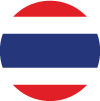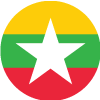October 2015
Engaging in the Business of Print & Magazine Media in Myanmar
Media in Myanmar has historically been the subject of extremely tight censorship. As the country now embrances democratic reform, legislation recently enacted would suggest this is now an industry ready for liberalisation and foreign investment. This brief summary glosses the present day situation for investment into print and magazine media industries in Myanmar, and considers just how accessable this industry is to foreign investors.
| a. | Pre Publication Censorship was abolished in 2012 when the Press Scrutiny and Registration Division under the Ministry of Information was disbanded, seemingly reducing the level of censorship. However it was replaced by the Copyrights and Registration Division which monitors content strictly. | ||
| b. | The Foreign Investment Law 2012 Notification 49/2014 provides that Foreigners are not allowed to engage in printing or broadcasting services without the approval of the Government. | ||
| c. | The Media Law 2013 promotes transparency and freedom of expression. It also establishes a Media Council (of which the President is a member) with broad powers to curtail and enforce a strict ‘code of ethics’. It also implements a licencing process, such licence being mandatory for anyone wanting to operate in print or other media industries. | ||
| d. | Printing and Publishing Enterprise Law 2014 is the most recent addition to the body of legislation affecting media in Myanmar. | ||
| - | Local and foreign investors can apply for licences for all kinds of publications; newspapers, magazines, journals. | ||
| - | Details must be provided in the application about the proposed publication and its editors. | ||
| - | $50 application fee, and an obligation to start the publishing business within two years if successfully granted permit. The law is silent on other restrictions. | ||
| - | At the time the act was passed it was seen to open up the market considerably, as previously the Ministry of Information had held much discretion on who was granted a licence. | ||
| - | 5 year personal licences available, no corporate licence. These licences can be cancelled (and criminal sanctions imposed personally) for publication of sensitive topics such as criticism of political situation, religion etc. | ||
| - | Approval of the cabinet is still required. | ||
| a. | Foreigners have not yet been given approval by the Government in practice to engage in print & media industries. | |
| b. | There have been some investments which have involved foreign partners, one notable example being the joint venture agreement between The Nation and Eleven Myanmar. This JV contained language to require the parties to work together in future ?when possible?. In the meantime the JV focused on collaborative marketing efforts for both brands in the respective countries. | |
| c. | Nominee arrangements have been used by some publishers. |
| Letterpress, offset, silk screen and inkjet. |
| Yes, including colour separation services, desktop publishing, dying textiles and offset printing. |
| Also required to have a licence in the same manner as print media publishers do. |
| Currently in circulation: | 11 daily newspapers |
| 210 weekly journals | |
| 190 magazines |
| The Myanmar Printers and Publishers Association can be reached through the UMFCCI. Their details are as follows:- Room 601, Level 5, UMFCCI Tower Number 29, Min Ye Kyaw Swar Street Landmadaw Township Tel: +9512300197 Email: mppa.myanmar@gmail.com |
If you would like to know more about investment in the media (or other industries) in Myanmar, please do not hesitate to contact Gary Biesty (Partner) or Ben Hickson (Managing Associate) in our Yangon Office.




 THAILAND ADDRESS
THAILAND ADDRESS
5th Floor, Zuellig House 1-7 Silom Road, Silom Bangrak, Bangkok 10500 Thailand
Tel : +66 2 6360585
Fax : +66 2 6360587
E-mail : enquiries@southasia-law.com
 MYANMAR ADDRESS
MYANMAR ADDRESS
No. 791, Lower Phone Gyi Road, Lanmadaw Township, 11191, Yangon, Myanmar
Tel :
Fax :
E-mail : enquiries@southasia-law.com